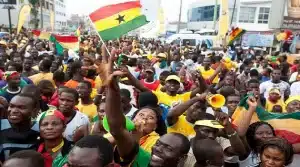Headlines
Ghana: From Prehistoric Times to Independence and Beyond

Ghana, a country located in West Africa, has a rich history that dates back to prehistoric times. The area that is now Ghana was inhabited since the Bronze Age (ca. 2000 BC) by societies based on fishing, but these societies have left few traces.
See Population, Official Language And More…

Ghana
The Kingdom of Ghana was one of the larger regional kingdoms that had formed in West Africa before its fall at the beginning of the 10th century. The Akan people migrated southward and founded several nation-states around their matriclans, including the first empire of Bono state founded in the 11th century and for which the Brong-Ahafo (Bono Ahafo) region is named. The Mole-Dagbon people, who founded the earliest centralized political kingdoms of Ghana, migrated from Lake Chad to present-day Ghana. Later, Akan ethnic groups such as the Ashanti, Akwamu, Akyem, Fante state and others are thought to possibly have roots in the original Bono state settlement at Bono Manso.
The area of the Republic of Ghana (the then Gold Coast) became known in Europe and Arabia as the Ghana Empire after the title of its Emperor, the Ghana. Geographically, the ancient Ghana Empire was approximately 500 miles (800 km) north and west of the modern state of Ghana, and controlled territories in the area of the Sénégal River and east towards the Niger rivers, in modern Senegal, Mauritania and Mali. The empire appears to have broken up following the 1076 conquest by the Almoravid General Abu-Bakr Ibn-Umar. A reduced kingdom continued to exist after Almoravid rule ended, and the kingdom was later incorporated into subsequent Sahelian empires, such as the Mali Empire.
The Gold Coast region became a protectorate of Great Britain in 1821 after a series of treaties with local rulers. In 1957, it became independent as Ghana under Prime Minister Kwame Nkrumah. Since then, Ghana has had a tumultuous political history with several coups and periods of military rule. However, it has also been a leader in African politics and economics. Today, it is one of Africa’s most stable democracies and has one of its fastest-growing economies.





